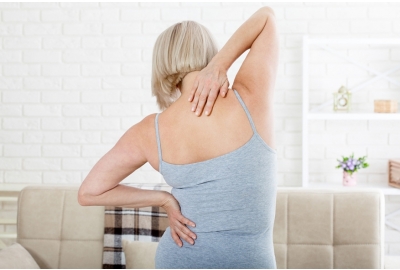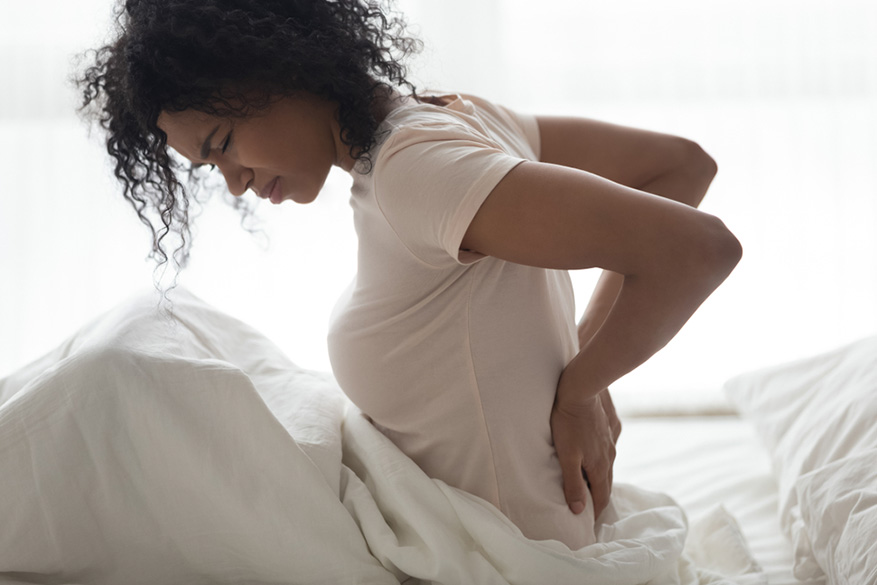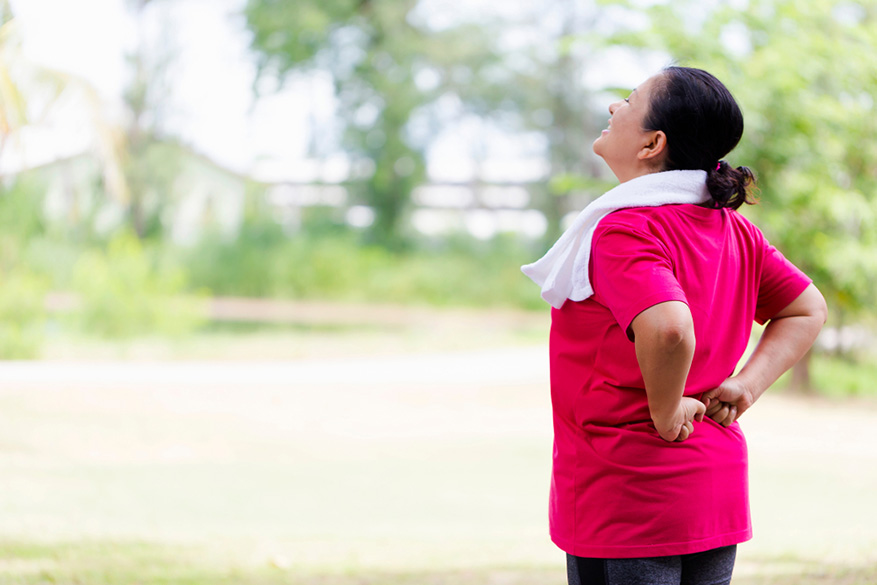
Back Pain and Incontinence: Understanding the Connection

By Rustle / Shutterstock.com
Maybe you’ve had back pain for a while and have recently started to develop incontinence, or vice versa. Maybe you started to develop them at about the same time. However the pain started, you want to learn how to manage both your back pain and incontinence. Back pain and incontinence are relatively common conditions, and they can occur at the same time. However, they may not always have the same cause even if they do happen around roughly the same time. Here’s what you need to know about back pain and incontinence:
Main Causes of Back Pain and Incontinence
That being said, in most cases, people develop back pain and incontinence independent of one another. Back pain is quite common, as your back does a lot of lifting and twisting and supports much of your weight. Many people temporarily hurt their backs through poor posture, incorrect lifting techniques, and carrying weights that are too heavy. Other health conditions that can cause back pain are fibromyalgia, osteoporosis, scoliosis, and inflammatory medical conditions such as arthritis. Many women also experience back pain during pregnancy because the growing baby puts a lot of strain on their back.

By fizkes / Shutterstock.com
Incontinence, or the involuntary release of urine, can also happen for many reasons. As you get older, your nerves and muscles may become less capable of controlling physical movements, including urination. An overactive bladder can lead to incontinence, as can prostate problems. Incontinence is sometimes a symptom of urinary tract infections. Some women also experience incontinence during pregnancy or after childbirth. Finally, certain medications can trigger incontinence as a side effect.
As you can see, there are many potential conditions that can cause back pain and incontinence separately. Your doctor will work with you to determine the underlying causes of each of your health problems and devise a treatment plan that will address these causes. For example, if your problem is caused by muscle weakness, they may recommend physical therapy — either back exercises or pelvic floor exercises — to help strengthen those areas.
Learn More About Pelvic Floor Exercises Here
One Rare Cause: Cauda Equina Syndrome
Cauda equina syndrome (CES) is a rare condition that occurs when a bundle of nerves in the lower back, a.k.a. the cauda equina, is compressed. This bundle of nerves is responsible for providing sensation to the groin area, which is why compressing it can result in both back pain and urinary incontinence.
The most common cause of CES is a herniated disk, which happens when one of the protective disks between your spinal vertebrae slips out of place. Other potential causes of CES include abscesses in the epidural or spinal areas, epidural hematoma (a.k.a. a buildup of blood), and a spinal tumor. Kidney stones, spinal cord injuries, and a burst artery in the abdomen can also cause back pain and incontinence to occur at the same time.
If you have a sudden onset of both urinary incontinence and back pain at the same time, you need to seek medical attention immediately. The longer you wait, the more nerve damage that can occur.

By JOKE_PHATRAPONG / Shutterstock.com
Managing Back Pain and Incontinence
There are some things you can do in the short-term to manage your symptoms while you and your doctor work to pinpoint the underlying problems. First of all, taking over-the-counter pain medication will help to reduce the pain and inflammation. Placing hot or cold packs on the areas can help soothe it as well. Resting your body from as much physical activity as possible will give your body time to recover. Make sure to support your back with a pillow and to sit and stand using good posture to avoid injuring it further.
If you are experiencing incontinence, bladder leakage pads will help keep you dry and comfortable as you and your doctor figure out what is causing your incontinence. Avoiding foods and beverages that are known to contribute to incontinence, such as caffeine and alcohol, will also help keep your symptoms in check. Make sure to void your bladder completely before leaving the house, going to sleep, and other situations where you don’t want to be interrupted with an untimely urge to urinate.
Learn How to Start Bladder Training Today
Back pain and incontinence don’t have to rule your life any longer. If you are experiencing both of these health problems, talk to your doctor about what might be causing them and what steps you can take to make them better. To learn about women’s health topics, including MS bladder issues and what pelvic floor therapy is, then check out our resource center. And if you’re in need of some bladder leakage pads, don’t forget to order them from Sofia & Grace to get them shipped straight to your door in discreet packaging.